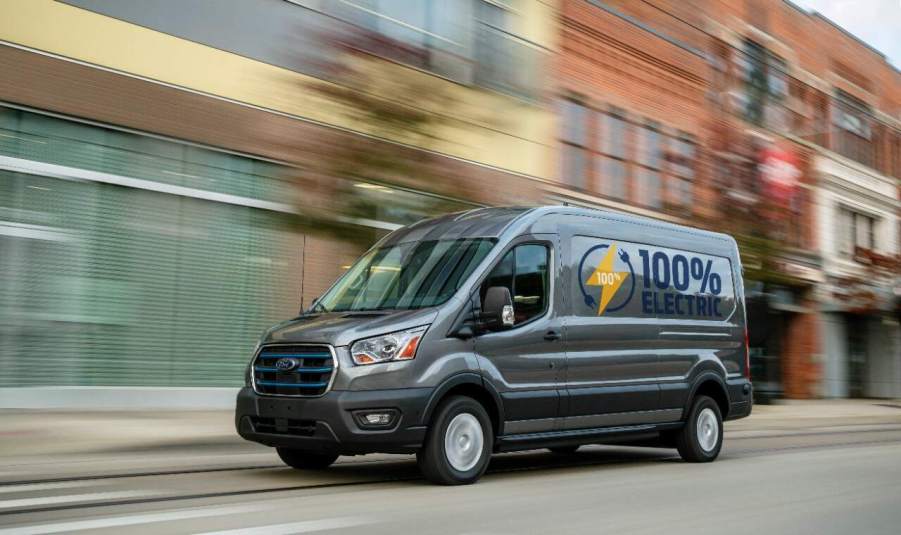
Only 1 Commerical Vehicle Is Eligible for an EV Tax Credit
If you’ve been thinking of buying an electric vehicle (EV) to take advantage of the federal tax credit incentives, you need to be aware of the new EV rules and regulations for 2023. The U.S. government has recently updated the EV tax credit structure with the new regulations going into effect on January 1, 2023.
These new standards have changed the eligibility of many hybrids, plug-in hybrids (PHEVs), and EVs. Under the new rules, only one commercial vehicle model, the Ford E-Transit, can receive a tax credit. Find out more below.

Look at the new EV tax credit regulations under the Inflation Reduction Act
The new EV tax credit regulations went live on January 1, 2023. While you still may be eligible for a clean vehicle tax credit of up to $7,500 under Internal Revenue Code Section 30D, the Inflation Reduction Act has tightened up the criteria for which EVs are eligible for this type of tax credit. The key provisions in the Inflation Reduction Act have introduced a variety of new criteria for EV tax credit eligibility.
According to the IRS, all vehicle make/models must have undergone final assembly in North America in order to qualify for an EV tax credit in 2023. This means that EVs such as the BMW i4, Hyundai Ioniq 5, Kia EV6, Subaru Solterra, and Toyota bZ4X are no longer eligible for EV tax credits.
In addition, vans, sport utility vehicles, and pickup trucks can’t exceed an MSRP of $80,000, and other vehicles can’t exceed an MSRP of $55,000 in order to be eligible. This provision does away with tax credits for pricier EVs such as the GMC Hummer EV, Lucid Air, Tesla Model S, and Tesla Model X.
The Ford-E Transit is the only commercial vehicle eligible for an EV tax credit
With all the new rules and regulations, only one commercial vehicle is now eligible for an EV tax credit in 2023. This commercial vehicle is the Ford-E Transit. Ford Reports that the starting price for the E-Transit is $49,575. The 2023 Ford E-Transit is available in three lengths, three roof heights, and three models, which include a cargo van, chassis cab, and cutaway.
When it comes to Range, Ford reports that the cargo van with a low roof demonstrates a range of 126 miles. The cargo van with a medium roof demonstrates a range of 116 miles. The cargo high van roof demonstrates a range of 108 miles.
An additional benefit for companies when it comes to utilizing the Ford E-Transit for their commercial vehicle needs is that Ford reports 40% fewer scheduled maintenance costs with the E-Transit.
What other Ford models are eligible for EV tax credits?
While the Ford E-Transit is the only commercial vehicle eligible for an EV tax credit in 2023, there are many consumer EVs that are also eligible for a tax credit. When it comes to the Ford EV lineup, the Ford Escape PHEV, the Ford F-150 Lightning, and Ford Mustang Mach-E are all eligible for the 2023 EV tax credit.
The 2023 Ford Escape Plug-in Hybrid has a starting MSRP of $38,500. The 2023 Ford F-150 Lightning is an all-around pickup truck with a starting MSRP of $55,974. The classic Ford Mustang is brought to the 21st century in the 2023 Ford Mustang Mach-E with a starting MSRP of $45,995.
While there are a number of new regulations that must be met in order to be eligible for an EV tax credit in 2023, there are still a number of great EVs to choose from.


